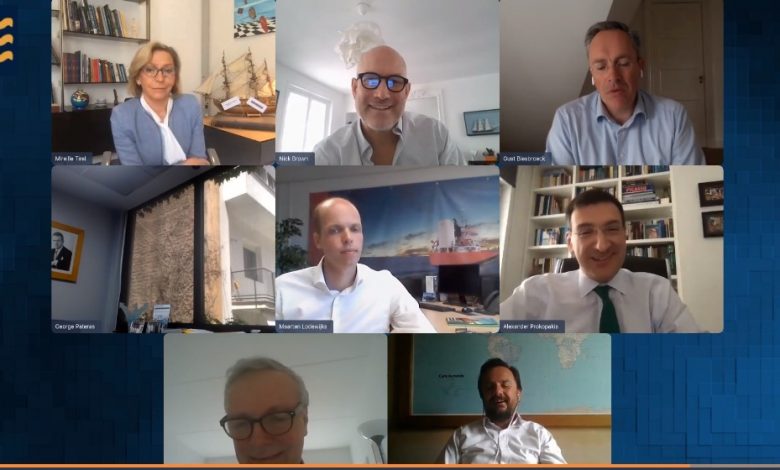Certainty is absurd

Bureau Veritas’s Nick Brown helmed a Mare Forum debate on Friday that got him thinking about Voltaire and Star Trek.
It was both an enjoyable and slightly nerve-wracking experience trying to moderate the great panel that MareForum put together in Sense and Nonsense, a webinar reviewing the decarbonisation landscape. While Covid-19 has ruined everyone’s plans for 2020 and beyond, I am not sure we generated much clarity on the impact of the pandemic except that cheap oil may inhibit progress and the IMO’s driving of the GHG regulatory process had been delayed – as had awareness of what, panelist Prof. Harilaos Psaraftis has described as the Elephant in the Room, namely the European Green Deal and the EU’s related plans to impose an emissions trading scheme on shipping.
But as expected the LNG as fuel debate generated a healthy discussion and if there are no clear conclusions to the question, what should shipowners do NOW – or what can they do NOW, I think there were a few strong take-aways, which may be obvious to some but it may also help to share them.
Momentum will be important. Gas is a fuel looking for markets. Growing supply of increasingly affordable gas is looking to grow demand. And instead of chickens and eggs, said Andrew Wilson, head of research at global shipbrokers BRS, we should think of LNG – in the absence of cleaner alternatives available either at scale or at the right price – as a snowball (a snowball I guessed rolling down a hill, gathering mass and momentum).
Alexander Prokopapis of Pro Bunkers is very pro-gas. LNG is his business – and he puts the case very well for gas-fuelled shipping, as well as supporting the bridge from conventional methane to synthetic or bio gases to substantially reduce GHG emission. Financier Gust Biesbroek made a good point about the role of charterers and trying to judge how serious they are by assessing whether your counterpart in any negotiation about finding solutions to reducing GHGs actually has success in their KPIs or not.
And all the big the LNG fuelled deals for really big non-liner ships (oil tankers) have been related to charters offered backed by charters from a handful of oil and gas majors. The comment was made that to shift the needle we have to move from a focus on shareholders to action by stakeholders. But money rules the world – the charterer will take the cheapest ship, said George Pateras.
The ever-eloquent and multi-tasking George was appearing on the panel in his capacity as the president of the Hellenic Chamber of Shipping. He kept disappearing from view as he attended to the challenges (a fuel problem was occupying him) of actually operating ships rather than talking about them. George is not for the LNG argument and while conceding that a StarTrek like future fuel is not immediately within our grasp, we need to get on with the business of developing some really effective future fuels rather than being distracted by LNG. He also sounded a warning about unintended GHG consequences with electrical motors.
Overall, the discussion got me thinking back to what my friend Tim Wilkins, the environmental director at INTERTANKO, planted in my brain a long time ago. That’s the concept of ‘net environmental benefit’. This was perhaps the strongest gravitational pull in the reasoning of all participants, I think and Maarten Lodewijks was eloquent on this subject.
By chance listening to the BBC at end of the week, I heard this quotation by Voltaire that summed up, perhaps, how I felt: ‘Doubt is not a pleasant condition, but certainty is absurd’. We’ll be living with future marine fuel uncertainty for a good while yet. In case that’s news to anyone.
